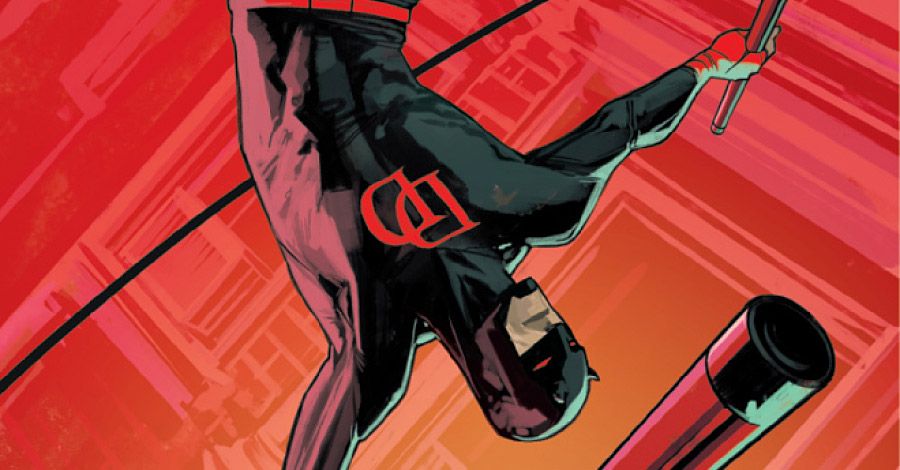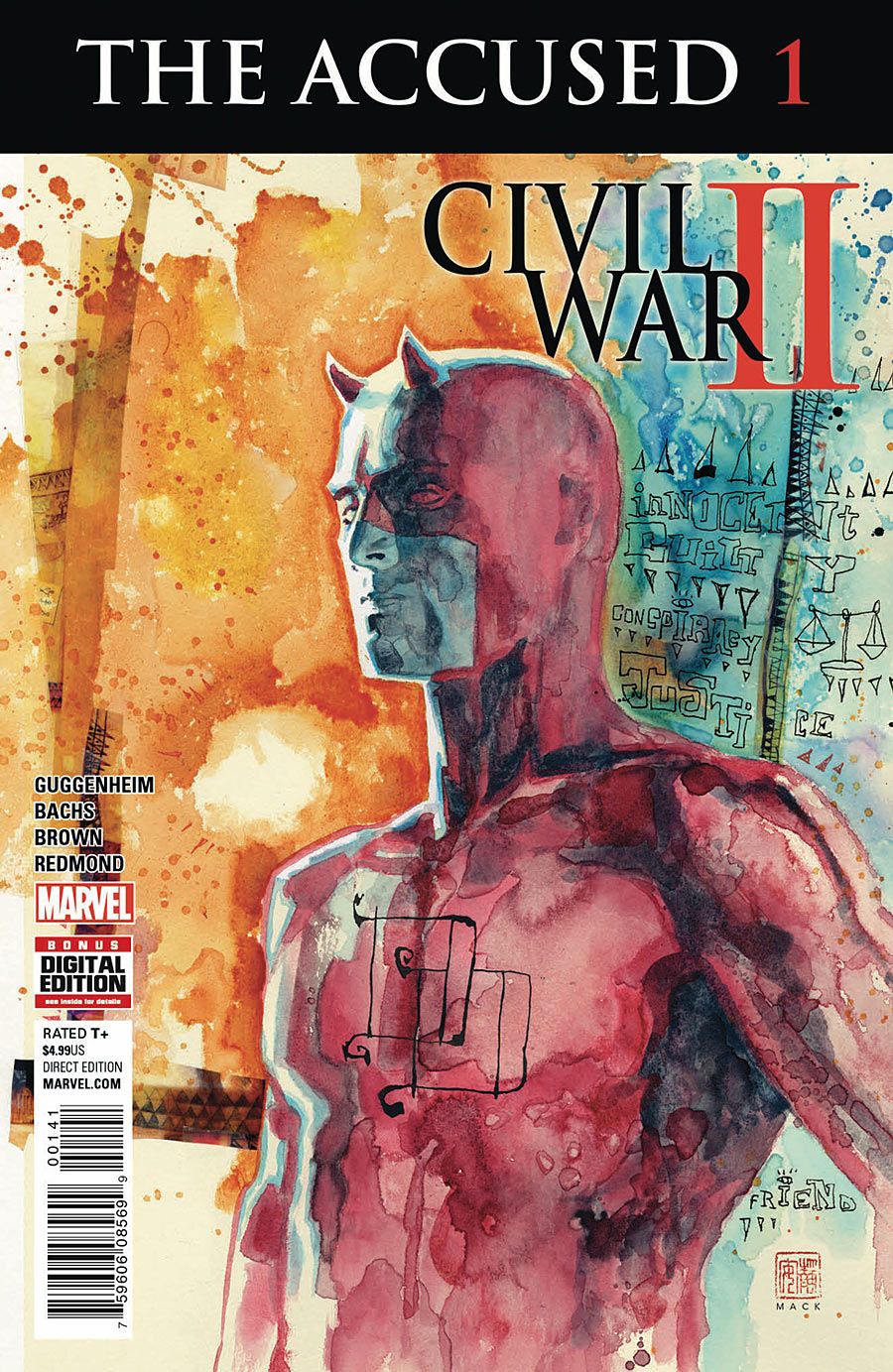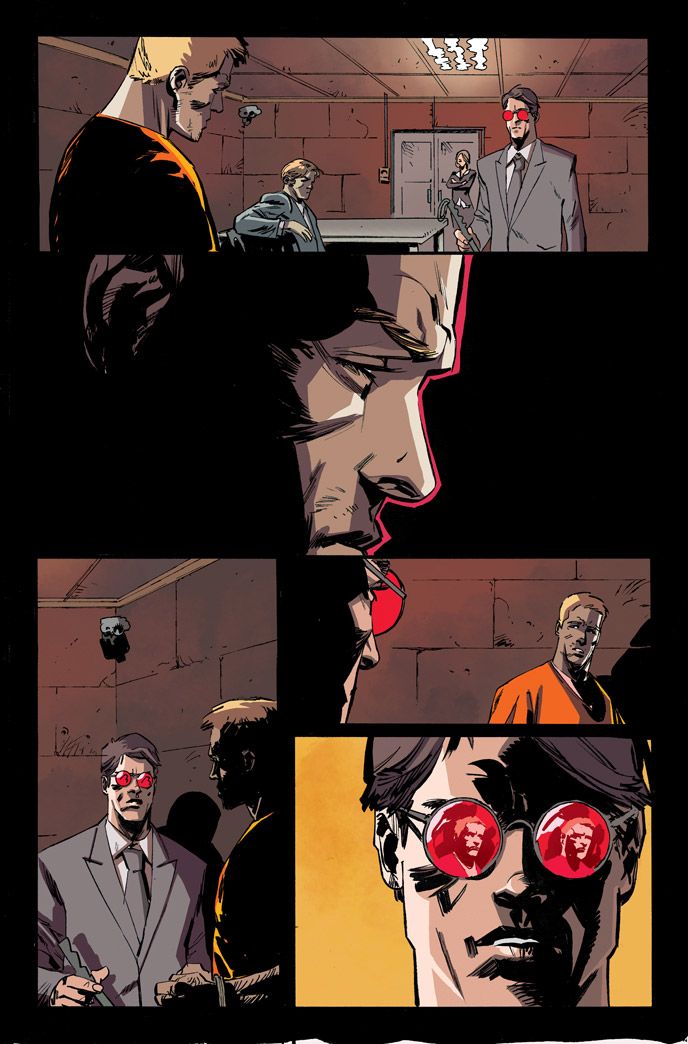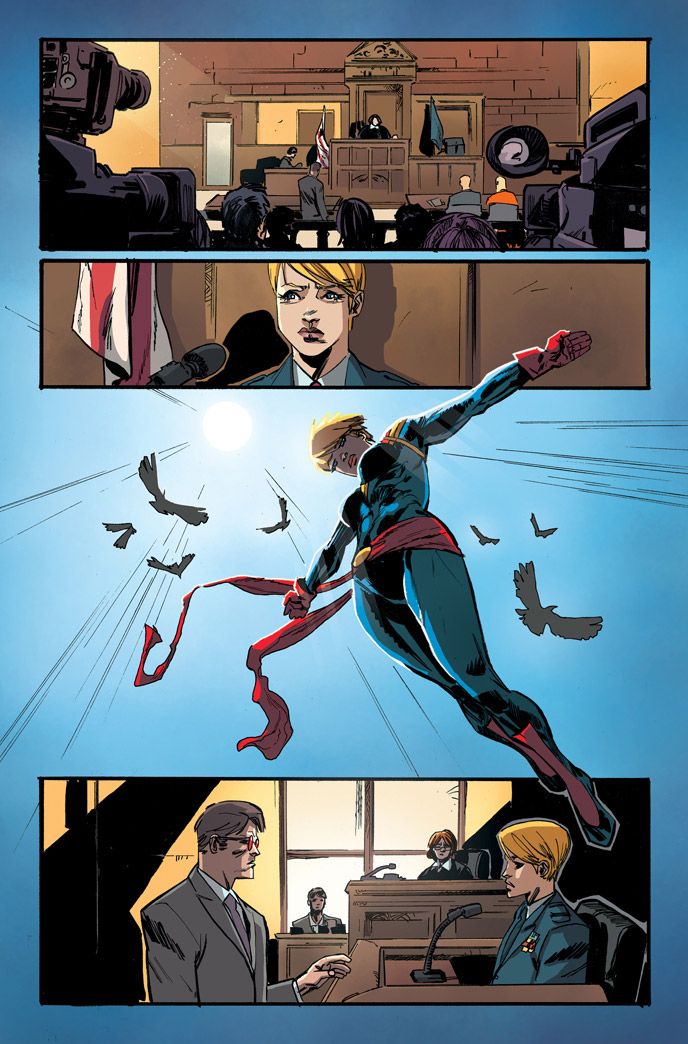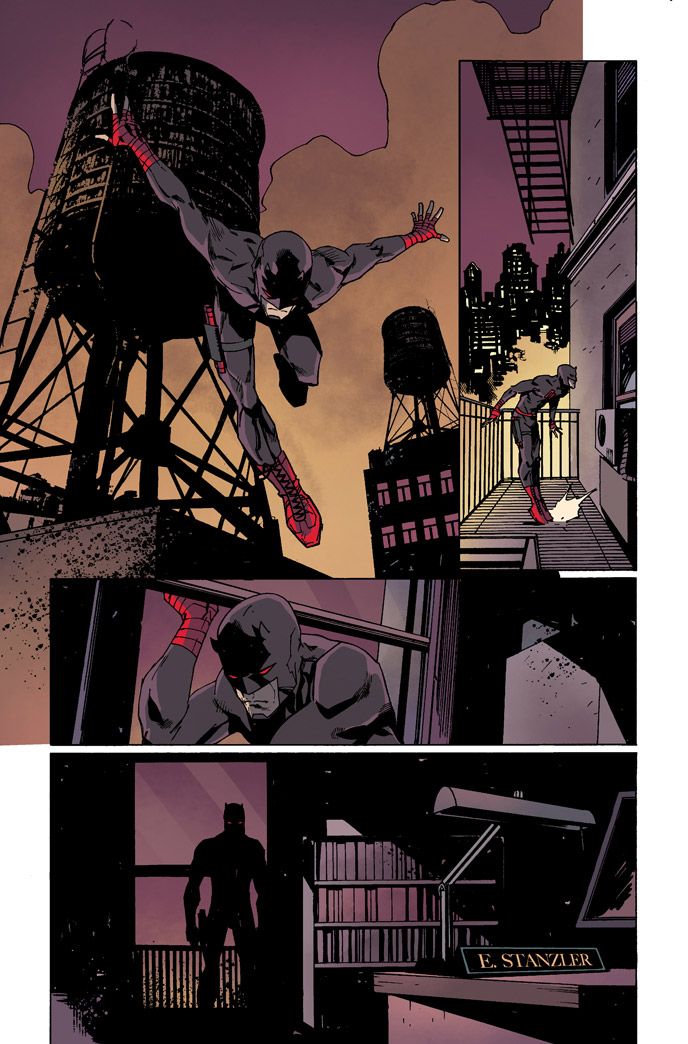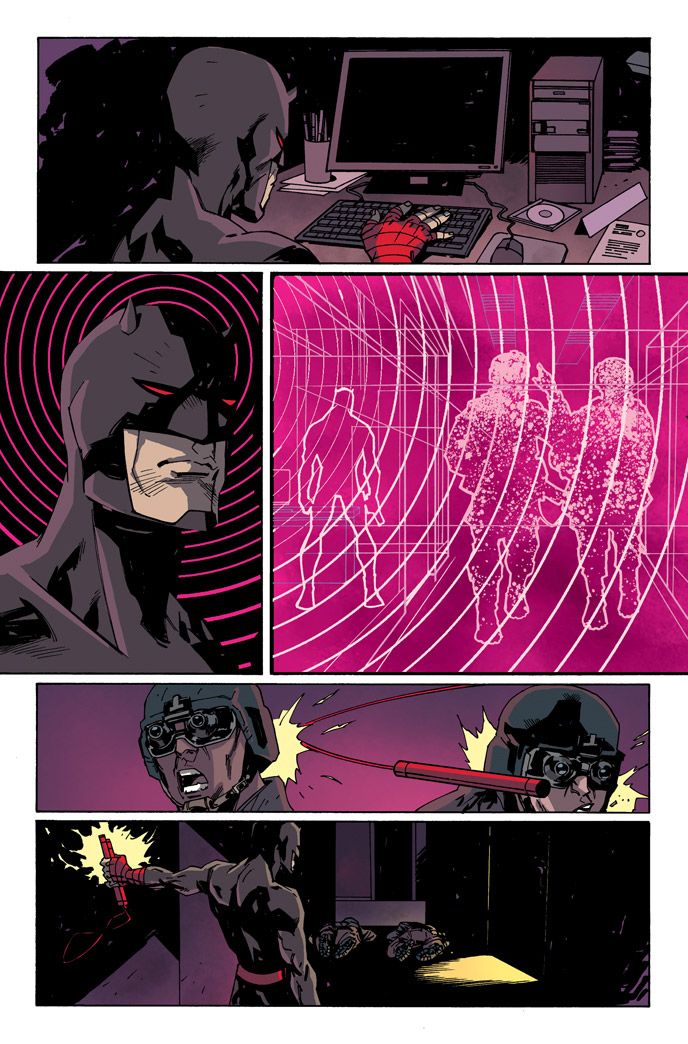"Civil War II" is far from over, but its impact has already changed the Marvel Universe in at a fundamental level. So far, two Marvel heroes have met their maker; War Machine, in the event's opening salvo, and founding Avenger, Bruce Banner, who died hands of another Avenger, Hawkeye.
While Brian Michael Bendis and David Marquez have offered readers glimpses of Clint Barton's murder trial and acquittal, the question remains of how the jurors came to their verdict of "not guilty." How did Clint go free when his fellow heroes swore testimony against him? And why was Matt Murdock, otherwise known as Daredevil, assigned to prosecute Hawkeye?
RELATED: SDCC: Marvel Plans For "Civil War II's" Final Battle
Writer Marc Guggenheim and artists Garry Brown and Ramon Bachs present the answers to those questions and more in "Civil War II: The Accused," a special one-shot which finds Murdock investigating, both in the courtroom and on the streets in his guise as Daredevil, a shadowy conspiracy invested in imprisoning Hawkeye.
CBR News: You're a pretty busy guy with your work on the "Agents of S.H.I.E.L.D" comic and your DCTV jobs, but I imagine, given your legal background, "The Accused" was too appealing to pass up.
Marc Guggenheim: What happened was, we're tying into "Civil War II" over in "Agents of S.H.I.E.L.D." right now, so in connection with that I was reading Brian Bendis' "Civil War II" scripts. I got to issue #4, where you get the verdict, and issue #3 you got a little bit of the trial of Clint Barton for killing Bruce Banner.
At first, I didn't say anything because I thought, obviously, Marvel was going to do a tie-in of some kind to show the rest of the trial, because I think there's a lot of story to be told there particularly in light of his acquittal in issue #4. How did we get there? The main narrative of "Civil War II" doesn't take you behind the curtain to show you how the jury would arrive at that verdict or even why they would arrive at that verdict.
A little time went by, and I hadn't heard anything about anyone doing the trial. So I shot an e-mail to Katie Kubert, my editor on "S.H.I.E.L.D." and I was like, "If you guys don't have any plans to show the trial, I think I've go an idea for a story here." No one was doing anything, so I got to pitch a story.
What I was very interested in doing was exploring what I felt were a lot of the unanswered questions in "Civil War II" #3. Like, how did Matt, a state prosecutor, end up on a Federal case? How did Clint end up getting acquitted? And how did the issues play out in the trial?
I wanted to do all of that in the midst of a legal thriller in the vein of a Scott Turow novel, and I hit upon this notion that perhaps there are forces within the government that are vested, shall we say, in seeing Clint Barton convicted. Not because they're law and order types who want to see an accused murderer get convicted, but because it behooves their larger agenda to see a superhero convicted of killing another superhero.
I don't want to spoil what exactly their agenda is, because I want people to buy the book! [Laughs] Suffice to say that their agenda actually leads back to the first "Civil War." So I saw in this story an opportunity to not only illuminate the events of "Civil War II," but also tie back into the events of the fist "Civil War." It was a lot of fun. We managed to fit 60 pages of story into 30 pages of comic.
What's it like though writing Daredevil, one of your favorite characters, in his new position as a prosecuting attorney?
It was something I had to get used to and wrap my brain around. Like many people, I've thought of Matt Murdock as a defense attorney for so long. What I thought was interesting about him being a prosecutor, and prosecuting Clint, is that there's an opportunity to explore his feelings about the circumstances that he's in.
One of the things that's always interesting in any kind of legal thriller is the question of, how does the attorney feel about the arguments they're making in court? Because in real life, your personal convictions don't necessarily line up with your responsibilities as an officer of he court.
That's certainly the case for Matt. He's not exactly itching to prosecute Clint. He's not joyfully rubbing his hands at the prospect of sending a fellow hero to prison, or even worse in the form of the death penalty, but Matt has got a job to do. I think that there's an interesting ethical dilemma for him in terms of how he goes about doing this job, particularly once he discovers that there are forces at work who are trying to stack the deck against Clint.
How does the action in "The Accused" unfold? Is there some street-level action to go along with the courtroom drama?
Yeah, there will be, and truth be told, that actually was the trickiest thing about writing this book. It's a superhero comic, so at some point people need to punch each other. [Laughs] There's plenty of action.
I didn't really design it that way, but because of the turnaround, we knew we needed two different artists to draw it. So we had Ramon Bachs drawing all the action stuff, and Garry Brown doing all the courtroom stuff. When I was dividing the script up, there was a happy accident in that it worked out to be an exact equal split between them in terms of art duties. That made me feel very happy, because it showed that there was an equal split in terms of action and courtroom drama, which is what this project needed -- that balance.
So there's plenty of superheroics, but hopefully there's plenty of cool court room maneuvering as well.
Who are some of the supporting characters Ramon and Gary will bring to life in "The Accused?"
Hawkeye's attorney definitely plays a role. I'm introducing a new character by the name of Stantzler, who is the Federal prosecutor who brings Matt into the case and is sort of the one putting the screws to him throughout. General Strakofsky from my "S.H.I.E.L.D." run plays an important role in the story, so this has a nice connection to the long-running story we've been doing with him in "Agents of S.H.I.E.L.D." It's also a "Civil War II" tie-in, so there's nice little cameos with a whole bunch of characters, including Captain Marvel and Tony Stark. Bruce Banner will even have a presence via flashbacks, because this is also very much his story in the sense that this is all happening because of him.
For me, what was fun about this -- other than the opportunity to write Matt and tell a courtroom story -- was, if you read "Civil War II," you're going to come away with an impression of how the trial unfolded. "The Accused" is the story you didn't get to see.

